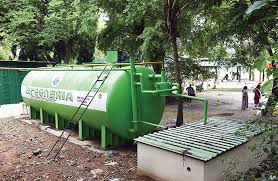
In a significant step toward sustainable waste management, the Agricultural Produce Market Committee (APMC) in Bandipalya, Mysuru, has announced plans to establish a biogas plant that will convert market waste into clean energy. The facility will process 20 to 25 tonnes of organic waste daily, generating renewable energy to power the market’s lighting systems and vehicles.
According to APMC officials, the initiative aims to transform the large quantities of vegetable and fruit waste generated in the market into useful energy, reducing both landfill burden and carbon emissions. The plant will utilize advanced anaerobic digestion technology to produce biogas and organic manure, creating a circular system that benefits both the environment and the agricultural community.
The Bandipalya APMC is one of the largest agricultural markets in southern Karnataka, handling hundreds of tonnes of produce each day. With the growing waste management challenge, this project represents a practical and eco-friendly solution. “The biogas plant will help us convert waste into wealth while promoting green energy use within the market premises,” said an APMC official overseeing the project.
The power generated from the biogas plant will be used to run streetlights, market sheds, and vehicles, significantly reducing dependence on conventional electricity and fossil fuels. The organic slurry left behind after biogas generation will be processed into high-quality organic fertilizer, which can be supplied to farmers at subsidized rates.
Environmental experts have hailed the project as a model for other APMC markets across India. They believe such initiatives can not only reduce greenhouse gas emissions but also support India’s broader mission toward clean energy and sustainable agriculture.
The Mysuru APMC’s move aligns with both the Swachh Bharat Mission and the National Bio-Energy Policy, showcasing how local markets can play a vital role in promoting green solutions and resource efficiency.
Once operational, the Bandipalya biogas plant is expected to serve as a benchmark for integrated waste-to-energy management, proving that even agricultural waste can power cleaner, more sustainable urban and rural futures.














